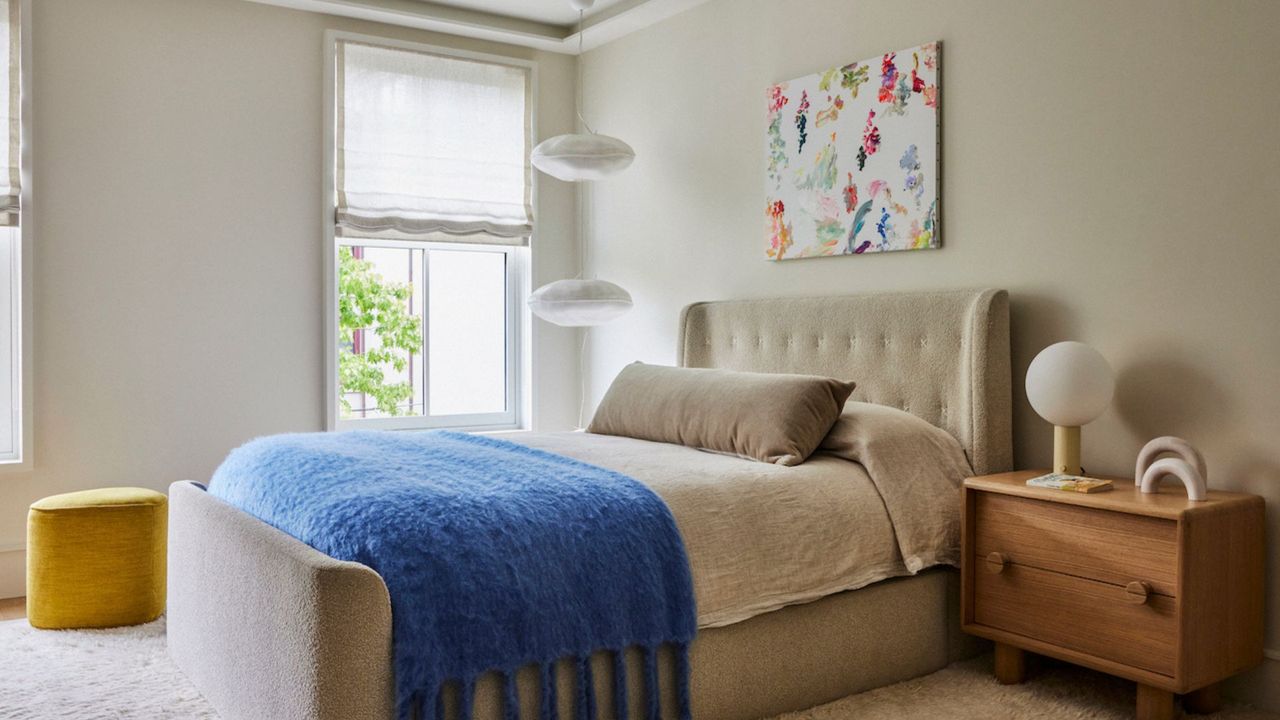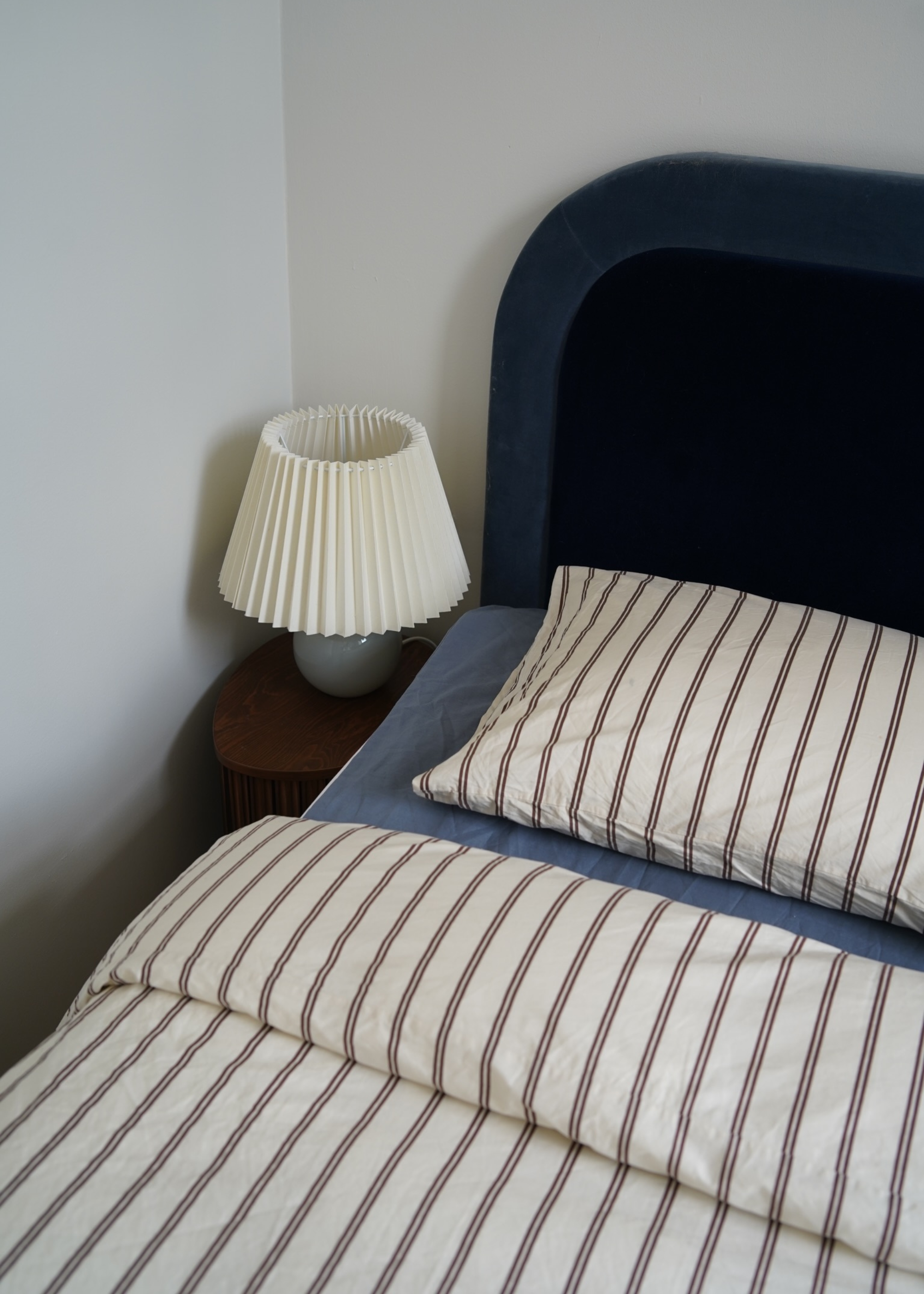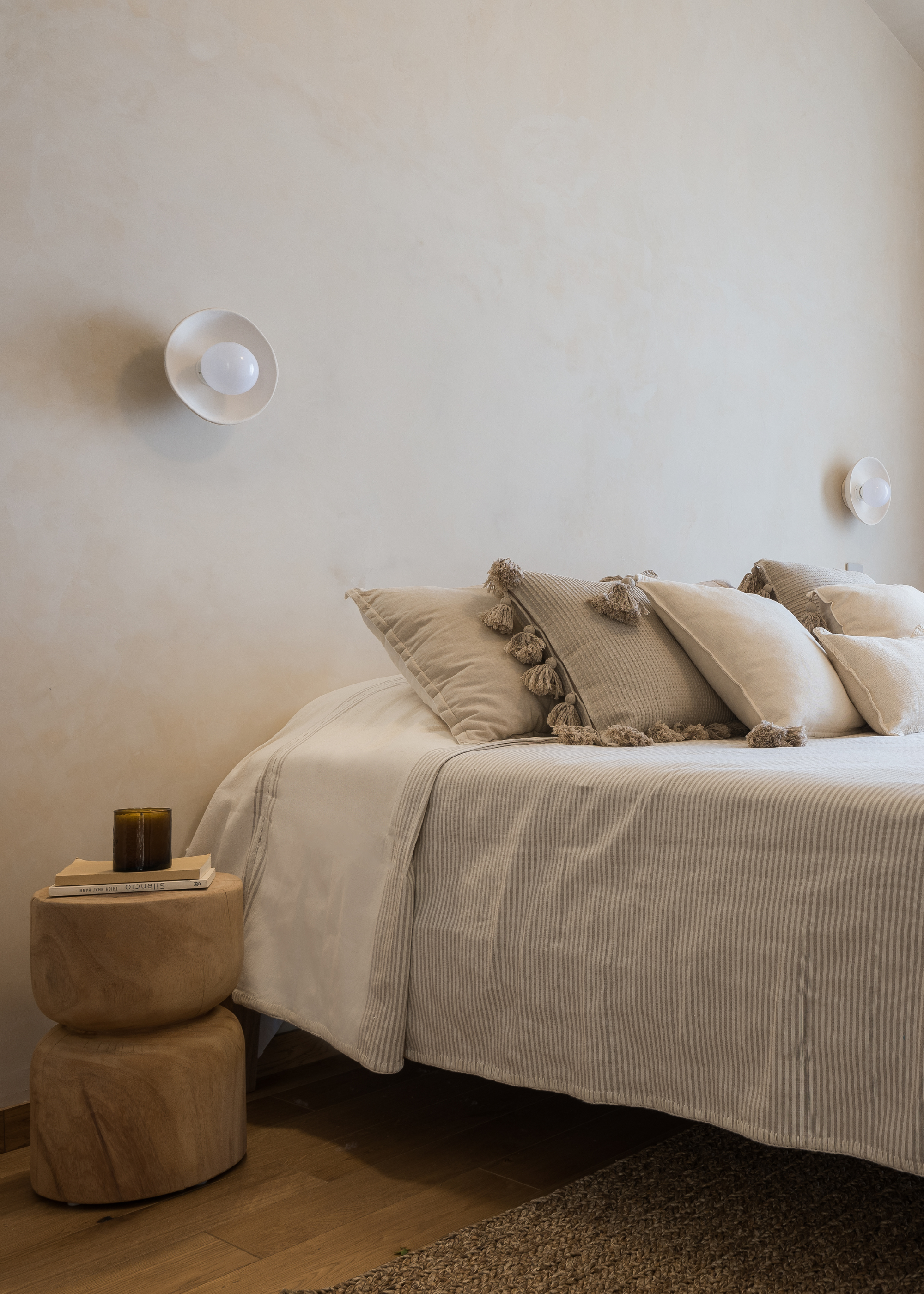
If there's one thing I can't stand, it's uncomfortable fabrics. Be it an itchy jumper, a scratchy throw, or worst of all, prickly sheets. I need my bedding to be invitingly soft, or I will not be able to catch a wink of rest. And it turns out that there are a handful of reasons behind why your sheets could turn heel and begin irritating your skin.
From entrusting your sleep hygiene to all the wrong fabrics to buying from bedding brands without glancing at the label for friendly color certifications, here's everything you should keep an eye out for.
And, we would never leave you in the lurch. So, for good measure, we have also included some helpful solutions to ensure that you look forward to cozying up in your bed at night.
1. You're Picking the Wrong Fabric

One of the reasons you could have trouble sleeping through the night is a poorly put-together bedscape. And I don't mean in design or layering, but rather in material.
"Some fabrics, such as polyester or microfiber, can be incredibly heat and sweat-sticky," says Dr. Emma Lin, sleep specialist and founder of Ready02. "And this may irritate your skin or produce small elevated spots called folliculitis."
The best way to combat this discomfort is to switch out your bedding for better fabrics. "I recommend making the switch to natural fibers such as cotton, bamboo, or TENCEL™," she suggests. "They breathe and maintain your skin cool and dry."
And if you're wondering where to shop, our guide to bedding brands you can trust will deliver on comfort, style, and affordability.
Material: Organic Cotton
This Aegean King Sheet Set from Bed Threads comes with a flat sheet, a fitted sheet, and a pair of pillow covers, too.
2. You're Not Changing Your Sheets Enough

Another reason your sheets are irritating your skin could be infrequent washing. I get it, laundry is a task that all of us love to put off. And unlike clothes, bedding doesn't directly reflect the need for a wash. However, that's exactly why it's so important to regularly refresh your bedscape.
"Skin cells, body oils, and sweat can accumulate on your sheets through regular use. This can cause dust mites, whose waste is a major trigger for allergies, eczema, and skin irritation," says Amreen Godhrawala, bedding expert at Puredown.
"As for how often you should wash your sheets, I recommend a weekly laundering. And, if you have very sensitive skin, consider changing them every four to five days in the unseasonably humid months."
Color: Hazelnut
As one of the best bedding brands around, you can trust these Pure Organic Cotton Double Flat Sheets on account of their softness and quality.
3. You're Using Strong Detergents and Fabric Softeners

Yes, washing your bedding often will help if your sheets are bothering your skin. However, if you're selecting the wrong detergents and fabric softeners, you could be reversing the effects of this solution.
"Using more detergent than you actually need or picking a liquid loaded with fragrances and dyes leaves a chemical residue on your sheets that directly causes skin irritation," says Emma.
"Instead, I recommend making the switch to hypoallergenic, fragrance-free, and dye-free liquid detergent. It's also advisable to use only the required amount of detergent per load, and consider adding an extra rinse cycle to your wash to clear any soap residue."
Our walk-through on how to wash bed linen will help you tackle laundry like a pro. Plus, you can also take a scroll through our rundown of how to care for bedding for added comfort.
Fragrance: Bergamot + Sandalwood
Lightly scented with essential oils and crafted in a pH-neutral formula, this laundry liquid will do right by your skin and your bedding.
4. Your Sheets Have an Unnecessarily High Thread Count

I'm slightly embarrassed to share that I only just discovered that there is such a thing as too high a thread count. Up until now, I was under the common assumption that the luxurious feel of bedding and thread count numbers were equally proportional.
But Emma sets the record straight, saying, "Some believe higher thread counts are better, but very dense sheets have a tendency to heat and, in turn, exacerbate itching or sweating."
To avoid any discomfort, she recommends looking for cotton and bamboo bedding that sports a 300 to 500 thread count. She explains that this will result in a cooler, softer, and better bedscape for sensitive skin.
Size: Super King
With a thread count of 400, you'll feel the luxury of a hotel bed at home with this Savoy Egyptian Cotton Sheet.
5. Your Sheets Are Dipped in Chemical Dyes

"Many types of bedding, especially 'wrinkle-free' ones or intensely colored sheets, are treated with harsh chemicals like formaldehyde resin, chlorine, and other heavy metal dyes," says Amreen.
She explains that the skin can absorb their residues in the fabric, and this could eventually become the culprit behind contracting dermatitis and other allergic reactions.
"Check for certifications like OEKO-TEX Standard 100 and GOTS-certified organic cotton in your bedding," she advises. "This will certify that the fabric has been tested and found free from a long list of harmful substances. And, it's pure from farm to finish to help you sleep better."
Color: Navy
These Double Deep Fitted Sheets from Christy have a 400 thread count and come with an OEKO-TEX certification.
FAQs
What Are the Best Sheets for Sensitive Skin?
"Softness, nature, and gentle chemicals are important considerations when selecting the best sheets for sensitive skin," says Emma. "I prefer organic cotton, bamboo, or TENCEL™. And, remember to opt for bed sheets that are hypoallergenic or OEKO-TEX certified, as they have been safely tested."
Besides your sheets, there might be some other things in your home that could also be troubling your skin. Since hard water is one such culprit, I recommend checking out the faucet filters and on-the-go filtered shower heads to cover all your bases.







